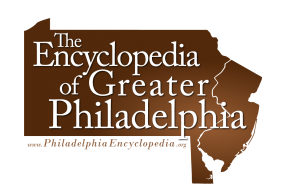Graduate Program in Public History
Rutgers University-Camden’s MA in history program builds students’ historical understanding either to augment skills in teaching or in public history work. Students in the public history track take nine credit hours of public history coursework, including courses on material culture, interpretation planning, and exhibit curation. Each student is also required to complete a 100-hour internship.
Graduate students pursuing one of the other three tracks also have the opportunity to earn a Certificate in Public History. To be awarded a Certificate in Public History graduate students would need to complete the following 3 courses: 1) Issues in Public History 2) A public history elective 3) An internship in public history or an approved substitution for this course (such as an Independent Study public history project, the Practicum in Public History Course, or Eagleton Program Internship).
For History graduate students, courses taken to earn the Public History Certificate are in addition to courses taken to earn the Masters Degree and cannot be counted for credit for both the Masters Degree and the Public History Certificate. Learn more about our public history offerings here.
Cooper Street Historic District
The story of Cooper Street reflects the history of the development of Camden. Originally laid out as Middle Ferry Road, the street provided access to the Delaware River and the ferries that crossed the river to Philadelphia. As Camden grew, prominent families and businesses moved onto the street, including RCA-Victor and Campbell’s Soup. Cooper Street’s prestige declined after World War II. In 1989 most of the street was designated a National Register Historic District.
The Cooper Street Historic District project involves efforts to further our knowledge of the history of the district and, by extension, the economic and social transitions of American cities. Rutgers-Camden graduate students have developed and led tours of the district, built the Cooper Street site, and developed a digital archive for research on the district. The Cooper Street Advisory Committee, made up of Rutgers-Camden staff, students, and neighbors, consults on interpretation and preservation plans for the district.
The Encyclopedia of Greater Philadelphia
 The Encyclopedia of Greater Philadelphia is a civic project to increase understanding of one of America’s greatest cities. Based at the Mid-Atlantic Regional Center for the Humanities (MARCH) at Rutgers-Camden, the encyclopedia project builds from a foundation of civic engagement and brings the work of leading and emerging scholars to a wide general audience. From abolition and the American Revolution to yellow fever and zoos (with cheesesteaks, rowhouses, and hundreds of other topics in between), the digital Encyclopedia and its print volumes will offer the most comprehensive, authoritative reference source ever created for the Philadelphia region.
The Encyclopedia of Greater Philadelphia is a civic project to increase understanding of one of America’s greatest cities. Based at the Mid-Atlantic Regional Center for the Humanities (MARCH) at Rutgers-Camden, the encyclopedia project builds from a foundation of civic engagement and brings the work of leading and emerging scholars to a wide general audience. From abolition and the American Revolution to yellow fever and zoos (with cheesesteaks, rowhouses, and hundreds of other topics in between), the digital Encyclopedia and its print volumes will offer the most comprehensive, authoritative reference source ever created for the Philadelphia region.
The Complete Works of Edith Wharton
The Complete Works of Edith Wharton (CWEWh) is being published by Oxford University Press in 30 print volumes under the General Editorship of Dr. Carol Singley, Professor of English. Volumes will also appear in the Oxford Scholarly Editions Online series.
CWEWh is the first scholarly edition of this important American writer’s work, spanning 25 novels including the Pulitzer Prize-winning The Age of Innocence, 87 short stories, 3 books of poetry, and a dozen books of nonfiction. Meeting the highest level of editorial standards, each volume provides an established text, record of variants from manuscript to book publication, annotations, and detailed introductions. A free online component, Digital Wharton, complements the series with interactive glosses, geospatial mappings of New York City, and displays of Wharton’s writing practices. Graduate students facilitate the project; if interested, contact Dr. Singley.
See the projects tab for more exciting initiatives.
